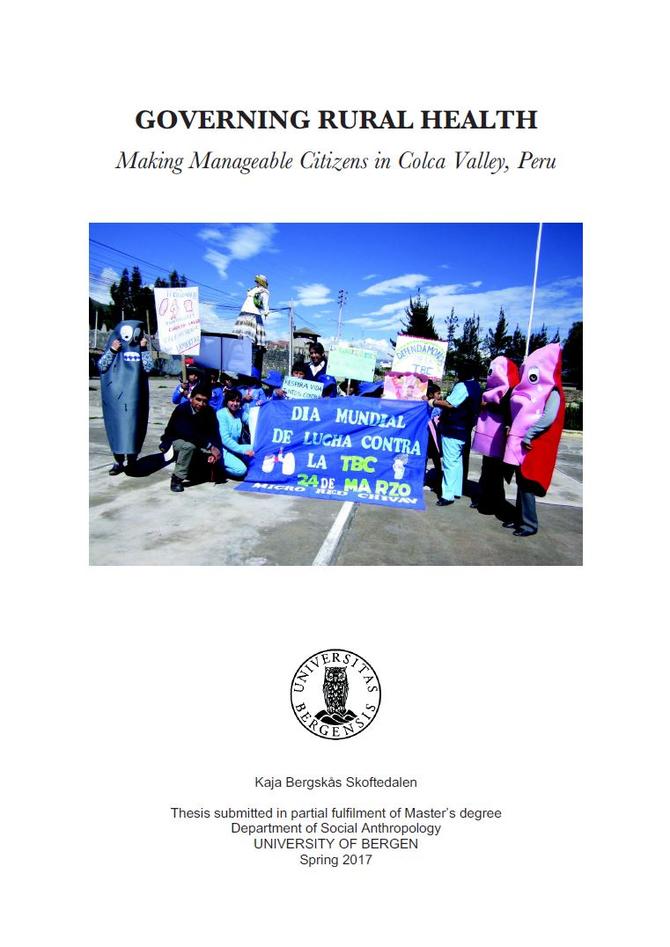Governing Rural Health. Making Manageable Citizens in Colca Valley, Peru
Hovedinnhold
Master's thesis submitted at Department of Social Anthropology, spring 2017
By: Kaja Bergskås Skoftedalen
Supervisor: Associate Professor Cecilie Ødegaard
This thesis is about public healthcare in the Andes and how women in the Colca Valley, an area located in the southern region of Arequipa, are made subjects by health-development projects Women in the Andes, especially those who are targeted in health-development programmes, are understood in certain ways by state-actors according to their ethnic identity. They are targeted by development programmes due to their socioeconomic status, but also because of their placement (by outsiders) in racial and class-related categories. The reason for the focus on women in this context is because it is women who were central subjects of health-development programmes in the Colca Valley. I explore discourses of health, hygiene and poverty, especially with regards to how these discourses actualise and reproduce certain notions of gender, race and class in the Peruvian context. In particular, I explore how women experience and negotiate health-development programmes, and how are such programmes actualised within pre-existing relations of power and inequality. Additionally, I investigate in what ways capacitación (training) and documenting practices are made particularly central in health-development programmes, and how do documents materialise power-dynamics between the state and citizen.
To understand how health-development programmes are comprehended by voluntary workers engaged from the community, I use Foucault’s (1979; 2002 [1972]) theories of power related to governmentality, discipline, and discourse. This theoretical framework facilitates my analysis of relations between the state and citizen in a context of poverty, development and public healthcare. Additionally, I focus on racial categories and cultural racism, illustrated by de la Cadena (2000:4) as cultural constructions taking part in dominant discriminatory practices, deriving from a ‘belief in the unquestionable intellectual and moral superiority of one group of Peruvians over the rest’. This way of thinking, called ‘new racism’ or ‘racism without race’, does not resort to racial terminology but tends to define race referring to culture as a marker of difference (de la Cadena, 2000:2-4).
